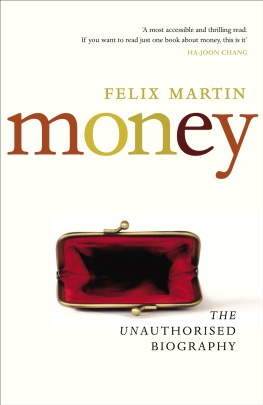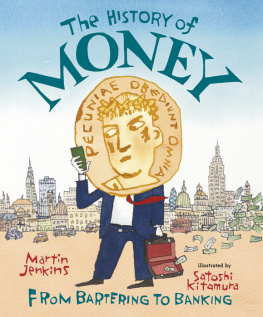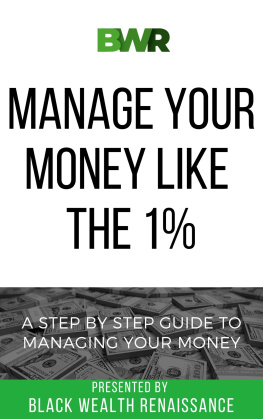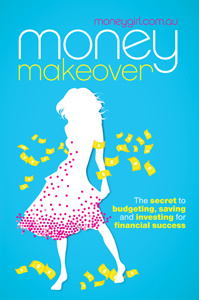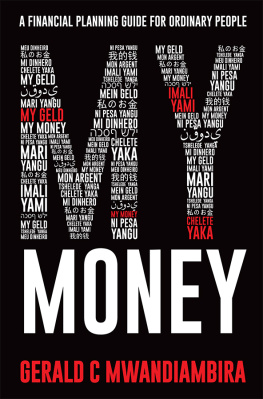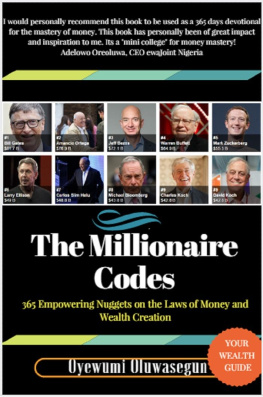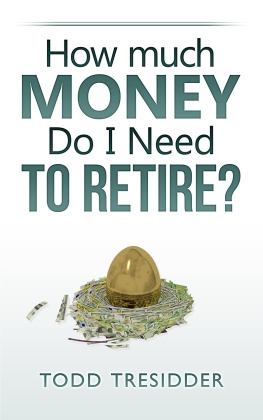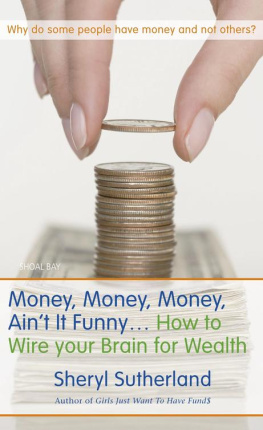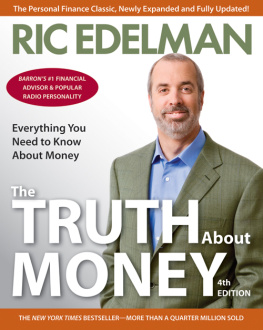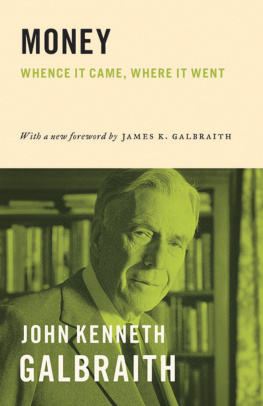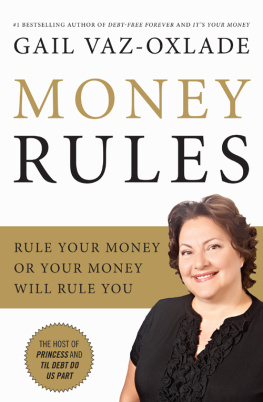Contents
Acknowledgements
There are so many teachers, friends, and colleagues from whom I have learnt over the years, and to whom I owe my sincere thanks, that it is almost invidious to pick out individuals. But since the opportunity to acknowledge publicly people who have done so much not just for me but for many other students comes round so rarely, I would like to thank here Tom Earnshaw, Steve Spowart, John Birkin, Peter Noll, and Lorne Denny; Jasper Griffin, Oswyn Murray, and the late Oliver Lyne; Mike Veseth and the late Pat McCarthy; and Chris Adam, Anthony Courakis, Colin Mayer, the late John Flemming, and my incomparable doctoral supervisor Antoni Chawluk.
This book is a work of synthesis, obviously and as such, I owe an enormous debt of gratitude to the many brilliant scholars on whose research and ideas it draws. In addition, I would like to thank especially several of them who were exceptionally generous with their time and knowledge in commenting on or discussing with me chapter drafts. My very sincere thanks in this regard to Richard Seaford, Antoin Murphy, James Macdonald, Hannah Dawson, Edward Skidelsky, Arthur Edwards, Wendy Carlin, Simon Wren-Lewis, Colin Mayer, Andy Haldane, Richard Harrison, John Kay, Perry Mehrling, Robert Skidelsky, and Mark Bearn. Ben Tobias provided invaluable help with research. Needless to say, any errors or infelicities that remain are mine.
The practical business of writing the book was greatly helped by the Centre for Global Studies in London, which hosted me as a research associate in the first half of 2012. My sincere thanks to Olga Bogomazova and to the Centre for so generously providing the ideal environment in which to work.
I owe special thanks to two people Ha-Joon Chang and Robert Skidelsky who encouraged me to actually write this book rather than just talk about writing it. Likewise, Will Goodlad, Joy de Menil, Philip Delves Broughton, Nicole Aragi, Tim Moore, Barnaby Martin, Joanna Kavenna, Anna Webber, Rory Stewart, and Aleksandar Hemon all provided masterful and greatly appreciated practical advice and encouragement. As for my agent, Natasha Fairweather, she is simply in a class of her own. I cannot thank her and the rest of the team at A. P. Watt Linda Shaughnessy, Lucy Smith, and Donald Winchester enough.
I have been incredibly fortunate to have had two exemplary editors in Stuart Williams at The Bodley Head and Andrew Miller at Knopf. Of course, this book would never have seen the light of day without their support and meticulous attention. But even if it had, it would have been much worse and also much longer. I am enormously grateful to both of them, and to Katherine Ailes and the rest of The Bodley Head team in London.
Finally and most importantly, I must thank my daughters for putting up with my absence; and above all my wife, Kristina without whom neither this book, nor many other much more important things, would exist. Thank you, my darling, for everything.
About the Book
What is money, and how does it work?
The conventional answer is that people once used sugar in the West Indies, tobacco in Virginia, and dried cod in Newfoundland, and that todays financial universe evolved from barter.
Unfortunately, there is a problem with this story. Its wrong. And not just wrong, but dangerous. Money: the Unauthorised Biography unfolds a panoramic secret history and explains the truth about money: what it is, where it comes from, and how it works.
Drawing on stories from throughout human history and around the globe, Money will radically rearrange your understanding of the world and shows how money can once again become the most powerful force for freedom we have ever known.
About the Author
Felix Martin was educated in the UK, Italy and the US, and holds degrees in Classics, International Relations and Economics, including a D.Phil. in Economics from Oxford University. He worked for the World Bank and for the European Stability Initiative think tank, and is currently a partner in the fixed income division at Liontrust Asset Management plc.
Bibliography
Alessandri, P., and Haldane, A. (2009), Banking on the State. London: Bank of England.
Amis, M. (1984), Money: a Suicide Note. London: Vintage.
Andreau, J. (1999), Banking and Business in the Roman World (tr. Lloyd, J.). Cambridge: Cambridge University Press.
Appleby, J. (1976), Locke, Liberalism, and the Natural Law of Money. Past and Present 71, 4369.
Aristotle (1932), Politics. London: William Heinemann Ltd.
Arnold, A.Z. (1937), Banks, Credit and Money in Soviet Russia. New York: Columbia University Press.
Arrow, K., and Debreu, G. (1954), Existence of an equilibrium for a competitive economy. Econometrica 22(3), 26590.
Aukutsionek, S. (1998), Industrial Barter in Russia. Communist Economies and Economic Transformation 10(2), 17988.
Bagehot, W. (1999) [1873], Lombard Street. New York: John Wiley & Sons Inc.
Basel Committee on Banking Supervision (2006), International Convergence of Capital Measurement and Capital Standards: A Revised Framework. Basel: Bank for International Settlements.
Basel Committee on Banking Supervision (2010), International framework for liquidity risk measurement, standards and monitoring. Basel: Bank for International Settlements.
Bellers, J. (1696), Proposals for Raising a Colledge of Industry of all Useful Trades and Husbandry, with Profits for the Rich, a Plentiful Living for the Poor, and a Good Education for the Youth: available at http://archive.org/stream/proposalsforrais00bellrich#page/n7/mode/2up.
Benes, J., and Kumhof, M. (2012), The Chicago Plan Revisited. International Monetary Fund Working Paper 12/202.
Besley, T., and Hennessy, P. (2009), Letter to Her Majesty the Queen, 22 July, 2009: available at http://www.britac.ac.uk/news/newsrelease-economy.cfm.
Black, F., and Scholes, M. (1973), The Pricing of Options and Corporate Liabilities. The Journal of Political Economy 81(3), 637654.
Board of Governors of the Federal Reserve System (2012), Flow of Funds Accounts of the United States. Washington, DC: Board of Governors of the Federal Reserve System.
Boswell, J. (1986), The Life of Samuel Johnson. New York: Penguin Classics.
Bouveret, A. (2011), An Assessment of the Shadow Banking Sector in Europe. Observatoire Franais des Conjonctures Economiques Working Paper: available at http://papers.ssrn.com/sol3/papers.cfm?abstract_id=2027007.
Boyer-Xambeu, M.-T., Deleplace, G., and Gillard, L. (1994), Private Money and Public Currencies. London: M. E. Sharpe.
Braudel, F. (1992), The Wheels of Commerce: Civilization and Capitalism 1518th Century, Vol. 2. Berkeley, CA: University of California Press.
Capie, F. (2012), 200 years of financial crises: lessons learned and forgotten. Mimeo: available at http://www2.uah.es/financial_crisis_spain/congreso2012/papers/Forrest%20Capie.pdf.
Carswell, J. (1960), The South Sea Bubble. London: Cresset Press.
Central Bank of Ireland (1970), Report on Economic Effects of Bank Dispute 1970. Dublin: Central Bank of Ireland.
Clanchy, M. (1993), From Memory to Written Record: England 10661307. Oxford: Blackwell.
Clapham, J. (1944), The Bank of England: A History, 2 volumes. Cambridge: Cambridge University Press.
Colacelli, M., and Blackburn, D.J.H. (2006), Secondary Currency: An Empirical Analysis. Mimeo: available at http://la-macro.vassar.edu/SecondaryCurrency.pdf.
Congressional Budget Office (2012), The Budget and Economic Outlook: Fiscal Years 20122022.
Next page
